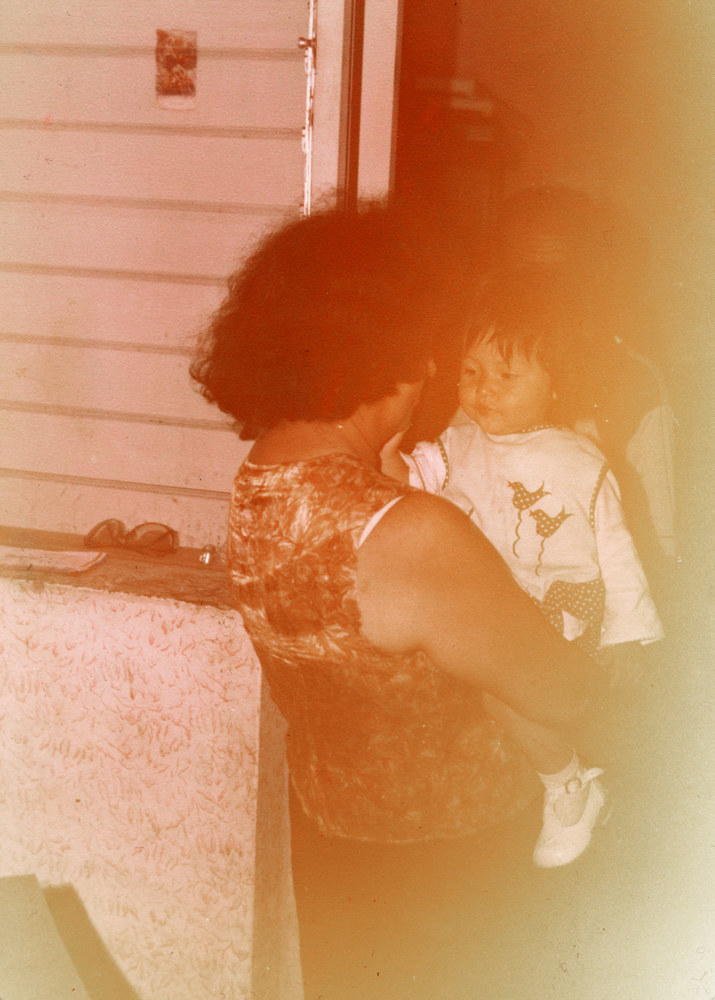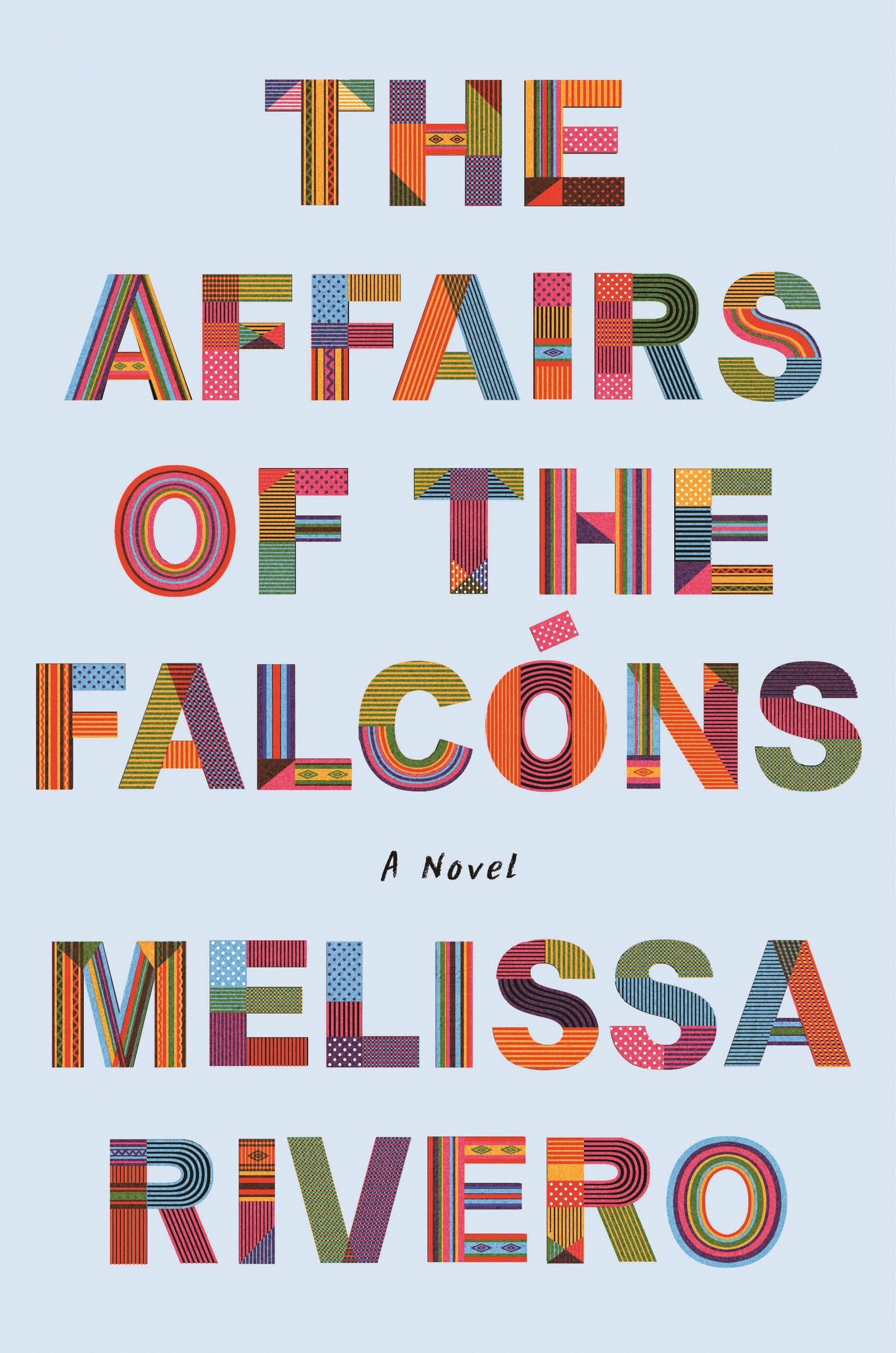
As children, we hold on to objects that soothe and comfort us. The proverbial security blanket can take the form of a doll we tuck underneath our arm or a tiny train we clutch in our small palms. For my sons, it’s a pair of teddy bears. For me, that object was an actual blanket, a gift given to me by the elders in my family, including my grandfather, in the days that followed my birth. Nearly 40 years later, it is one of the only objects I have that connect me to both my father and my grandfather, a man who loved me but whom we left behind when my parents and I immigrated to the United States. And while I may be an adult now, I still seek the comfort it offers, its connection to my past, and to the fathers who loved me.
The blanket, or colcha, is an oversized alpaca blanket the color of earth and sunset, each side decorated with four identical bouquets on every corner. It was purchased at a market in Lima, Peru, an object that my mother thought was simply too well-made and too generous a gift for an infant. But my grandfather Sixto insisted that it was meant for me and meant to be de por vida.
I was, after all, his and Luzmila’s first grandchild. They had had children later in life and never thought they’d live long enough to become grandparents. They were staples in their neighborhood in Bellavista, Callao, a city in the northern part of Lima. My grandfather, in particular, was a man whom everyone knew and loved: The neighborhood polymath, he could carpenter a dining room table in a matter of weeks, needed only a few days to make a pair of shoes for a Communion, and read palms over dinner. He was proud of his two sons, men who eventually went to college, though neither ever finished. The fact that they attended at all was enough of an accomplishment.
He’d grip its edge, picking up the cool Callao air as he tossed it up before laying it over me, giving me his blessing as I slept.
At the time of my birth, my father worked in the accounting department of a bottling company; my mother was a nurse technician. They lived with my grandparents, and long before I actually came into the world, my grandfather had decided he would care for me when they returned to work.
He was, in every way, my first father. With his dexterous hands and keen eye, Sixto made my first pair of shoes before I could even walk. He spent his mornings making lunch for us, fresh pots of sopa de sémola or sopa a la minuta. When we were done eating, he let me nibble on butter cookies dipped in black coffee. Sometimes, despite my parents’ protests, he let me drink some. He assured them it wouldn’t hurt me. I often wonder if my fondness for coffee comes from those moments of sharing a cup with him.
And it was the colcha that my grandfather used to keep me warm during naps and at bedtime. He’d grip its edge, picking up the cool Callao air as he tossed it up before laying it over me, giving me his blessing as I slept. He disliked taking pictures, and I have just one image of him, my grandmother, and me during this time, a poorly taken photograph that is partially obscured by light. In it, my grandmother is holding me, a child in a white dress decorated with green birds, wearing the white-strapped shoes my grandfather made me. If you look closely, you can see him behind me, his face barely visible. But he was present, and for those first few months of my life, Sixto was Papá.
Nine months after I was born, my mother was pregnant again. By then, Peru’s poor economy, with its accelerating inflation and stagnant wages, had made it difficult for my parents to cover our basic living expenses. Sellers at the market would hide milk, eggs, and meat, knowing they could sell those items the next day or the following at a higher price. My father had to drive outside the city just to get milk, which he bought out of a trunk of a shopkeeper’s car.
My parents decided they had to leave Peru. My father first tried his luck in Ecuador. He spent a month there alone, trying to find work, but eventually returned to Lima. He and my mother considered New York, where some friends had moved years earlier and where they believed work would be easy to find. My father was supposed to come over first. My mother and I would follow once he had a job and a place to live. My grandfather, however, insisted that this time, we all go. We were a family — we had to stay together. We were fortunate to have this choice; it isn’t one that all families can make.

My parents sold everything they could: pots and silverware they received as wedding gifts, our beds, a hair dryer. They did not know when or if they’d come back, but they were convinced that a better future awaited us abroad. They filled two suitcases with clothes and shoes, what they considered to be necessities — and my colcha. De por vida, my grandfather had reminded them when they wondered whether it made sense to take something so bulky when they had such little space. But it was already such a comfort to me, he argued, and it would be cold in New York, colder than Callao. I cannot imagine the heartbreak he must have felt at seeing us go, the anguish over the unknown journey before us, hoping we’d be OK. That we’d see each other, hold each other, again.
We never did. I was 6, the same age my eldest son is now, when my grandfather died. I still remember my father, sitting on a chair in the living room of our apartment in Brooklyn, his head hanging, clutching the phone when he got the news. I hugged him; I was aware, even at that age, that he would never see his father again. And though I understood what that meant, it was only decades later that I grasped the magnitude of that loss, when I lost my own father.
And so, I have few memories of my grandfather. I have mostly sketched him out from crinkly phone conversations over long-distance calls, government ID–sized pictures my mother has in her old photo albums, and my parents’ memories: his straining eyes, the tin in his voice, the amulet he crafted — a good-luck charm for our journey. I can recall pressing the telephone receiver into my ear, winding the cord around my fingers as I listened to him call me hijita, ask me how I was doing, how were my little brothers.
And I have his colcha. The same blanket he used to keep me warm in Callao was the same blanket my father used to keep me and my brothers warm in New York. On the harshest nights, the three of us would huddle beneath it with our parents close by. Together, like my grandfather said we should always be. Eventually, my brothers and I could no longer fit under it, and it became mine again. Over the years, I found myself seeking its warmth whenever the night felt too cold, whenever the street light invaded my sleep, whenever I needed solace. It is like a cocoon, reinvigorating me with the energy passed onto it by my grandfather’s hands and my father’s. It holds my sons now, too, whenever they curl up next to me and drift into sleep. I smooth it over as I press my lips to their foreheads and ask my fathers to watch over them, to cover and protect them with the same love that covered and protected me. One that was, and will always be, de por vida.

Melissa Rivero was born in Lima, Peru, and raised in Brooklyn. Undocumented for most of her childhood, she became a US citizen in her early twenties. Her writing has taken her to the VONA/Voices Workshops, Bread Loaf, and the Norman Mailer Writers Colony. In 2015, Melissa was an Emerging Writers Fellow at the Center for Fiction. She is a graduate of NYU and Brooklyn Law School, and currently works as in-house counsel at a startup. She still lives in Brooklyn with her family.
The Affairs of the Falcóns is her first novel.
